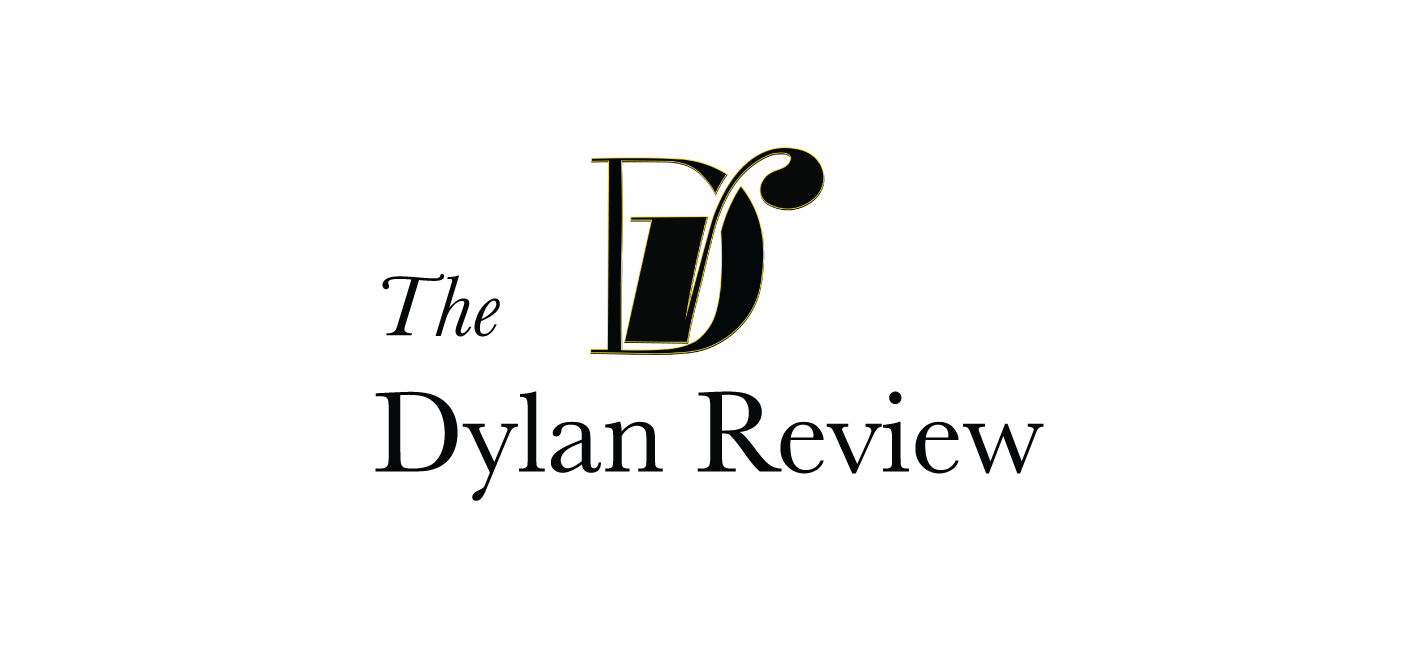FORUM CONTRIBUTION BY Andrew Muir, The Leys School, Cambridge, UK
Is turning 80 any more a “significant juncture” than turning 79 or 81? No, it is not. Nevertheless, people are in thrall to the “0,” and thus we attribute spurious significance to it. In doing so, we grant ourselves an opportunity to pause and reflect. Here, I add to that impulse by taking stock of Dylan’s life and times and applauding his unparalleled achievements.
There have been other significant 0’s for Dylan. Back in 1971, Schulz’s Peanuts cartoon strip ran the following exchange: “Bob Dylan will be thirty years old this month.” “That’s the most depressing thing I’ve ever heard.” A simple exchange that, characteristically, contained much of import. It was saying goodbye to the perceived “golden age” of the 1960s. Dylan’s name was synonymous with that decade to such a degree — a seemingly unbreakable connection still haunts him to this day — that this cartoon poignantly portrayed children acknowledging the passing of naïve, youthful dreams.
Twenty years later, Dylan reached 50 to an outpouring of acclaim for his work at a time when his stock had been at an unusually low ebb. There was also a new “birth” on this “special” birthday, that of The Bootleg Series. That first set was a collection of immense artistic value and, yes, “significance,” both in itself and for all the releases in the series it kick-started.
Now Dylan is 80, yet another generally accepted “milestone year” and one that encourages reflection on the life so far lived. Bob Dylan’s has so far encompassed the reigns of the following presidents: Franklin D. Roosevelt / Harry S. Truman / Dwight D. Eisenhower / John F. Kennedy / Lyndon B. Johnson / Richard Nixon / Gerald Ford / Jimmy Carter / Ronald Reagan / George H. W. Bush / Bill Clinton / George W. Bush / Barack Obama / Donald Trump / Joe Biden. That is quite a list, and “significance” can be attributed merely to having lived through so many, especially from an American perspective, with the country itself being so young. At 80, Dylan has been alive for almost a third of the USA’s history. That is an astounding concept from my outsider’s perspective; living, as I do, in a city with a university over 800 years old. Furthermore, although Dylan’s significance and influence are global, he is first and foremost an American artist, and he has been the country’s pre-eminent artist for approximately a quarter of its existence.
Such scopes of time are difficult to keep in perspective. Here is a framework to help in that regard, especially for younger readers unburdened by the unstoppable passing of decades. Even restricting ourselves to Dylan’s professional life, his 1961 concert in New York stands midway between today and 1901, a year which began with Victoria on the British throne and McKinley, assassinated that September, as detailed at the beginning of “Key West,” as President of the US. If you extend the same contextual concept to Dylan’s life, then his year of birth, most aptly, especially considering his twenty-first-century output, stands midway between today and 1861, the year the US Civil War began.
Lifespan aside, it is the work itself that matters and wherein lies Dylan’s mighty “significance.” There is no need to list his extraordinary achievements in a publication such as this. To name but one, Dylan taught us that popular music could express anything and everything about the world and human existence. It could ask and answer the question “how does it feel” by conveying the reality of living in these times and how we can (try to) transcend our time-bound, mortality-conscious condition. “Not bad for starters,” as they say, and, as we know, there is so much more besides. It would take very many volumes to cover all of Bob Dylan’s significant achievements; many have been written, and very many more are heralding this particular birthday. The surface is being scratched; decades of further studies lie ahead.
Dylan’s influence on others is another “significance”; not just his towering presence in nearly all popular music fields but also on other artists from varied disciplines. Such as novelists (e.g. Rushdie, Ishiguro), actors (e.g. Nighy and Rylance), and poets, including Maya Angelou, another of “America’s great voices of freedom,” as Jack Nicholson said of Dylan. Angelou is another artist who was still creating new work into her eighties. She once claimed that “Shakespeare must be a Black girl,” and she has also referred to Dylan in eye-catching phrases. Her words, a fitting place to finish this humble note on the occasion of Dylan’s 80th, came ten years ago, celebrating yet another “0” ending, Bob’s 70th birthday:
The truth is, Bob Dylan is a great American artist. His art, his talent is to speak to everyone, and when I say American, I think he’s a great African American artist, he’s a great Judeo-American artist, he’s a great Muslim American artist, he is a great Asian American artist, Spanish-speaking artist — he speaks for the American soul as much as does Ray Charles.
That mention of Ray Charles resonates “significantly” as I type this, with recent events in “Georgia, on my mind.” Angelou concluded her prescient remarks with these soberingly apt words for the situation we find ourselves in a decade later (italics mine):
There was a time when Bob Dylan was the new boy in the neighborhood. . . . When Bob came everyone loved him because he was what we all intended; he spoke for all of us. . . . He supported the people and the spirit of being American — to know that the mountains, the streams and the voting booths belong to us all at all times.

